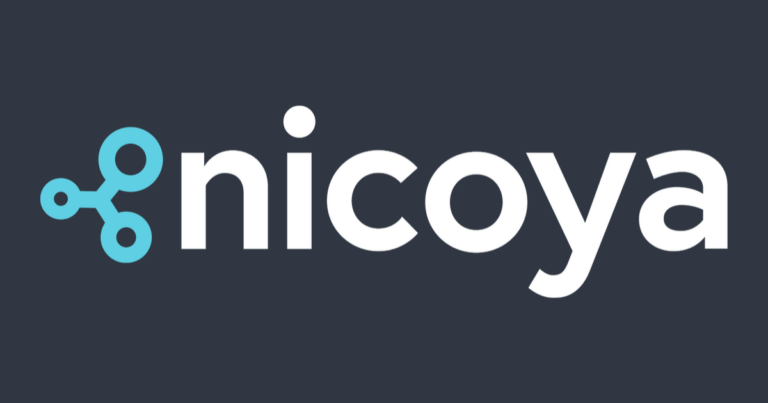At the American Society of Human Genetics (ASHG) 2025 industry session, Oxford Nanopore Technologies announced a series of major updates aimed at advancing translational and clinical human genetics. The company’s new developments are designed to help researchers and clinicians achieve deeper insights into the molecular mechanisms of disease through a single, integrated analysis platform.
At the heart of these updates is the unveiling of the PromethION Plus Flow Cell, a new ultra-high-output sequencing solution engineered to deliver highly comprehensive genomes and methylomes at significantly lower cost and with improved scalability. This innovation strengthens Oxford Nanopore’s position as a leader in delivering real-time, information-rich sequencing for both discovery and clinical research applications.
Enabling a New Era of Comprehensive Genomic and Epigenomic Insights
During the ASHG presentation, Oxford Nanopore showcased how the PromethION platform continues to redefine what is possible in human genetics by combining whole-genome sequencing (WGS) and methylation profiling in a single workflow. This unique capability allows scientists to study both genetic and epigenetic features of disease in parallel, providing a richer and more complete understanding of underlying biological mechanisms.
The PromethION platform’s Adaptive Sampling technology was highlighted as a transformative tool that allows real-time, on-instrument selection of regions of interest without the need for laborious target capture or probe hybridization steps. With Adaptive Sampling, researchers can enrich or exclude genomic regions dynamically during sequencing, enabling faster and more flexible assays tailored to specific research or clinical needs.
These combined advances are helping Oxford Nanopore users across the world tackle major challenges in human health — from resolving rare disease diagnostic odysseys to enhancing cancer characterization and uncovering novel associations in common complex diseases.
Introducing PromethION Plus Flow Cells: High Output, High Value
The newly announced PromethION Plus Flow Cell represents a major leap forward in sequencing technology. It has been engineered with enhanced chemistry and optimized architecture to deliver higher throughput, improved consistency, and greater cost-efficiency — all without the need for flow cell washing.
The PromethION Plus Flow Cell will enable researchers to generate comprehensive genomic and epigenetic data on a larger scale, supporting studies that demand high precision and throughput. The new flow cells will be compatible with the PromethION 24 device and optimized for multi-genome multiplexing, paving the way toward significantly lower per-sample costs.
Oxford Nanopore projects that, with PromethION Plus, researchers will soon be able to achieve fully comprehensive human genomes and methylomes at costs below $345 (at 30× coverage) — a remarkable milestone that further democratizes access to high-quality genomic information.
The company plans to introduce the PromethION Plus Flow Cells in limited release in Q4 2025, followed by broader commercial availability in 2026.
Driving Value Through Adaptive Sampling and Rapid Workflows
Oxford Nanopore also revealed a series of new workflow and assay enhancements designed to accelerate research and expand accessibility to real-time sequencing in clinical and translational settings. These updates center on three key pillars: speed, flexibility, and information richness.
1. Adaptive Sampling for Targeted Sequencing
Oxford Nanopore’s Adaptive Sampling technology remains one of the company’s most distinctive advantages. It allows users to target and enrich specific genomic regions directly during sequencing — without complex sample preparation. This unique capability eliminates the need for conventional hybrid capture or amplification steps and enables researchers to pivot between assays seamlessly.
At ASHG, Oxford Nanopore highlighted several targeted sequencing applications powered by Adaptive Sampling, including:
- Hereditary cancer panels interrogating 258 genes associated with inherited cancer risk, allowing laboratories to move rapidly from sample to answer.
- Rapid tumor methylation profiling, enabling faster, information-rich analysis of tumor epigenomes.
- Comprehensive pharmacogenomic panels, supporting precision medicine through detailed drug–gene interaction insights.
2. 24-Hour Genome Workflow
In a major advancement for translational genomics, Oxford Nanopore announced a new 24-hour workflow for comprehensive human genome analysis. This streamlined process delivers sample-to-answer results in a single day, providing critical support for neonatal intensive care units (NICUs) and urgent rare disease diagnostics.
By reducing turnaround time from days to hours, this workflow offers a path toward real-time genomic medicine — where rapid sequencing can guide clinical decision-making for some of the most vulnerable patients.
Expanding Opportunities for Scaled Human Genetics
The introduction of the PromethION Plus Flow Cell and Oxford Nanopore’s expanded suite of workflows come at a pivotal moment for the field of human genetics. Large-scale population studies, precision medicine programs, and translational research initiatives are increasingly seeking ways to capture not only genomic sequence variation but also epigenetic context — methylation, structural variation, and transcriptional dynamics — all of which are critical to understanding disease biology.
The PromethION Plus platform is purpose-built for these challenges. Its ability to deliver both genetic and epigenetic data simultaneously from native DNA provides researchers with a powerful, scalable solution for population-level discovery and clinical characterization.
The company emphasized that PromethION Plus will benefit a wide range of research areas:
- Population genomics and biobanking, where comprehensive data quality and cost efficiency are key.
- Rare disease and cancer research, where identifying structural variants and epigenetic modifications can accelerate diagnostic discovery.
- Pharmacogenomics, enabling clinicians to better understand individual drug response variability.
Looking Ahead
With these innovations, Oxford Nanopore continues to push the boundaries of genomic technology — transforming the way researchers and clinicians approach the study of human biology and disease. The company’s integrated platform, combining real-time sequencing, methylation detection, and adaptive targeting, positions it as a leader in the next generation of comprehensive genomic medicine.
As the PromethION Plus Flow Cell enters limited release later this year, Oxford Nanopore is poised to deliver on its vision: making ultra-accurate, fully comprehensive, and cost-effective sequencing available to every genetics lab — from large-scale population programs to bedside clinical applications.



